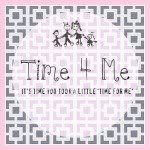Literally. Don't you sometimes feel like you are up to your eyeballs in crap? There's nothing worse than when the baby, or anyone for that matter, has a stomach bug. So what is it that gets us into this crap? The list of possibilities is long. Your baby's diarrhea could be caused by a viral or bacterial infection. It might also be the result of a parasite, a course of antibiotics, or something he ate. No matter the cause the effect is less than pleasant for everyone involved.
Luckily a case of diarrhea is rarely serious. It can however become complicated when baby has a severe diaper rash or becomes dehydrated. If your baby is successfully keeping breast milk or formula down then continue to feed as usual. If your baby can't keep breast milk or formula down, call his doctor, who may suggest that you start giving him a pediatric electrolyte solution. These solutions are available in drugstores and come in flavors that most babies will readily drink if they're dehydrated. They're generally easier to keep down than breast milk or formula, too.
Avoid things like Sprite or 7 UP and drinks like Gatorade and Powerade. All of these contain sugar that draws water into the intestine and makes the diarrhea worse. Other than keeping baby hydrated the best things you can do are to cuddle and love the baby. Provide all those things that make your baby feel comfortable and secure. Binki, blanket, stuffed animal. Whatever it is. Be sure to provide for diaper rash too. Inevitably with a case of diarrhea your baby will get a diaper rash.
Call the doctor immediately if your baby is 3 months old or younger and he has diarrhea. If he's over 3 months, call the doctor if your baby has diarrhea and doesn't seem to be improving after 24 hours. Also call if your baby has diarrhea and any of the following symptoms:
- vomiting multiple times
- signs of dehydration such as dry mouth, not having had a wet diaper for six hours or more, and crying without tears
- blood in his stool or black stool
- a high fever — 101 degrees Fahrenheit (38.3 degrees Celsius) or higher if he's 3 to 6 months old; 103 degrees F (39.4 degrees C) or higher if he's 6 months or older. (If your baby is less than 3 months old and his temperature reaches 100.4 degrees Fahrenheit — 38 degrees Celsius — or higher, call the doctor immediately; a baby this young needs to be checked for serious infection or disease.)
Fingers crossed and hand sanitizer ready! Let's hope we can avoid to much Crap this fall.








 BLOG DIRECTORY, Submit blog free, Promote Blog, Best directory
BLOG DIRECTORY, Submit blog free, Promote Blog, Best directory
No comments:
Post a Comment